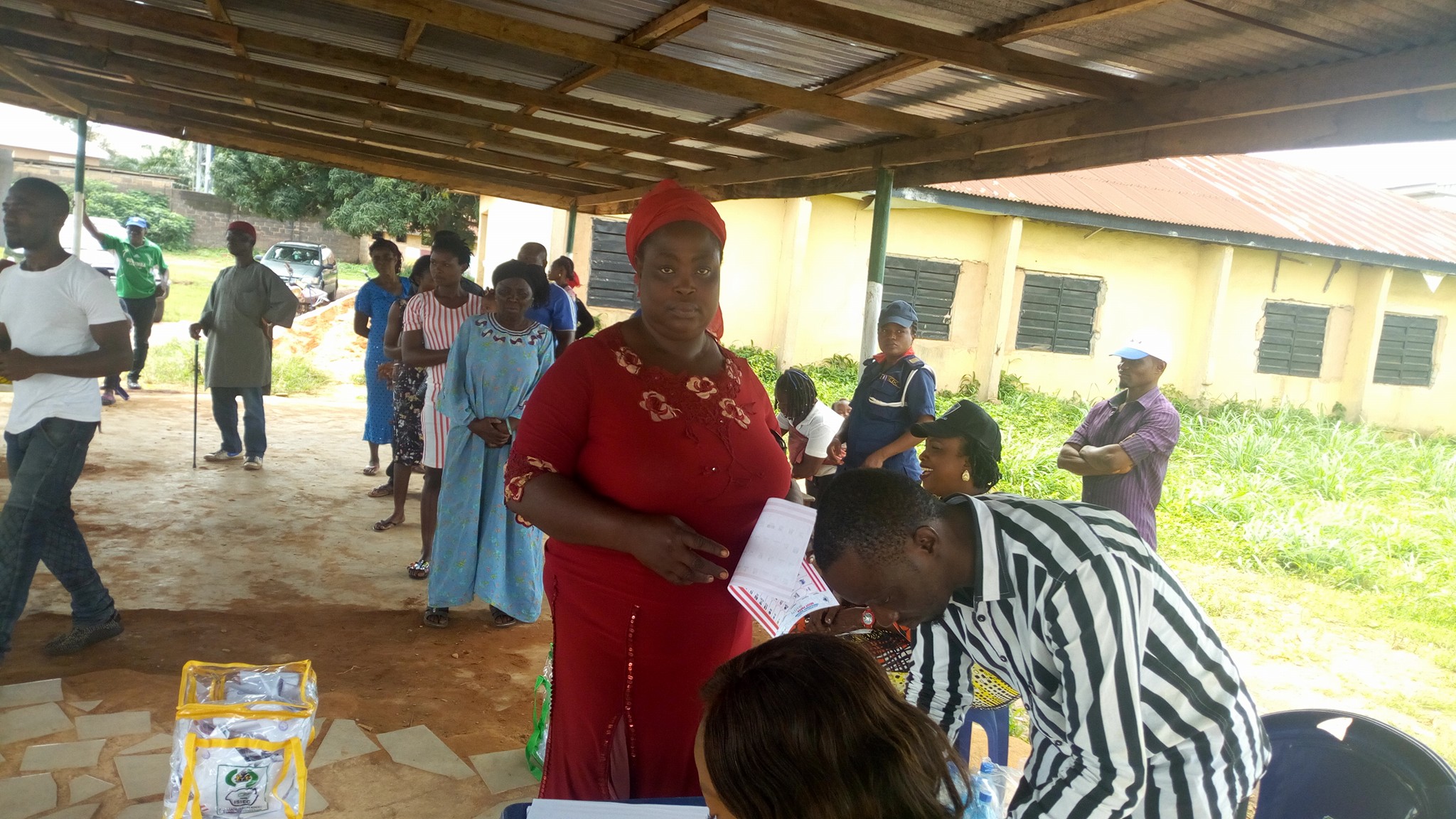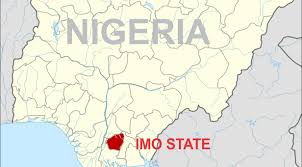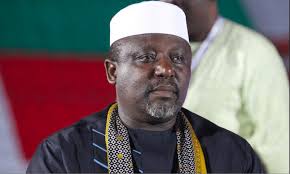Four months to the governorship election in Imo State, the editorial crew of innonews.com.ng deemed it appropriate to embark on extensive investigation and analysis of the political situation in the State based on existing political dynamics capable of determining the outcome of the 2019 governorship election.
This led us to provide an unbiased analysis which reveals the colouration of the contest. Our findings were anchored on several factors and as we took into consideration the depth of alignments and realignments of candidates, their political backbone in the Local Governments and wards, seen and unseen factors that play out during elections in the State. Also consideration was given to the visibility of the candidates not on the social media but down to hamlets, villages, communities, wards and Local Governments in the State.
Core issues that shape the outcome of governorship elections in the State were factored in. This however does not entail that the variables will not change before the polls hold on March 2nd, 2019. The report was not tailored to favour any of the candidates as there is a clear observation that all the governorship candidates are qualified for the plum job.
The report divided into four parts took cognizance of other critical issues that come up during elections,gives an assessment of the strength of the political parties, rating and perception as it relates to the chances of the candidates.
INTRODUCTION
The 2019 governorship election in Imo State is a very close contest judging from present political dynamics on ground. It will be difficult to predict a winner of the polls as indications are clear that none of the candidates have developed a very clear edge over the other.
The contest is a straight one for the candidates of the All Progressive Congress, APC, Senator Hope Uzodinma, Peoples Democratic Party, PDP, Hon Emeka Ihedioha, Action Alliance, AA , Uche Nwosu and All Progressive Grand Alliance, APGA, Ifeanyi Araraume.
The four major political parties and their candidates are “rooted” in the State with large membership, spread and solid grassroots penetration.
Except Uche Nwosu of the Action Alliance, AA, who has the backing of the State Governor, Rochas Okorocha, the three other governorship candidates, Araraume, Ihedioha and Uzodinma have been on the political turf of the State for over a decade and have successfully built vast political allies and followers. This count a lot during elections in the State.
Some other candidates are coming up strong in the polls but they are plagued by little or no political structure and not to impressive grassroots penetration. This category of candidates anchor their ambition on their capacity, and intellectual ability to turn around the State for good if elected.
If this narrative becomes a yardstick for winning the 2019 guber elections, then candidates of the United Progressive Party, UPP, Hon. Tony Nwulu, Social Democratic Party, SDP, Okey Ezeh, Young Progressive Party, YPP, Linus Okorie, Ejike Chukwu of Africa Democratic Congress, ADC, Accord Party candidate and former Imo State Governor, Ikedi Ohakim will be in contention.
Unfortunately, majority of the Imo electorate seem to be tilting towards the “big four” candidates perhaps due to their capacity and wherewithal to win the 2019 governorship election. The sudden drift could be attributed to the depth of awareness and sensitization of the aspiration of the candidates carried out by their political foot-soldiers, allies and loyalists across the State. This measure has succeeded and permeated into the huge segment of the voting population.
The Imo governorship election has already shown its colouration and direction.It will be won by the fittest and not really by the most acceptable. The factors which shaped the 2011 and 2015 elections in the State will not be replicated in 2019. Despite the fact former Governor Ikedi Ohakim and Governor Rochas Okorocha never won the governorship elections in the State on the strength of political structures, they were beneficiaries of interplay of political dynamics and variables in other parties with visible structures that eventually favoured them during the 2007 and 2011 governorship elections.
Ohakim and Okorocha were elected Governors on the platform of then weak political parties, the Progressive Peoples Alliance, PPA and All Progressive Grand Alliance, APGA. While Ohakim rose to power on the strength of a rift in the then ruling PDP, Okorocha was a huge benefactor of the “mood swing” of the Imo electorate who overwhelmingly voted for him in 2011.
*Zoning, Voter Perception/Mood Swing Of The Electorate*
According to a report by Imo Awareness Coalition, IAC, a political study group based in Owerri, the polls will be hugely influenced by six factors namely present mood of the electorate, acceptability, perception/popularity of candidates, party structure, likely voting pattern, mood swing of voters and the electorate. Voting will also be influenced by various sentiments propelled by divergent interests of the voting population.
Zoning is a major consideration but the intensity of the 2019 Imo governorship contest seem to paling it into insignificance as a greater majority of the Imo electorate are pandering towards who among the four candidates have the capacity to undo the other at the polls.
The multiplicity of candidates is also confusing the electorate who are already caught in the web of uncertainty on who really should take over from Governor Rochas Okorocha in 2019.Never in the history of the governorship election in Imo State have over 60 candidates emerged. This will lead to a no clear winner at the first vote raising worries that a run off or supplementary election may become imminent.
Despite the excess number of candidates, the four major governorship candidates remain front runners in the race because of their persistence in the public domain through aggressive and reach out campaigns, existence of functional party structures, quasi political groups up to the ward levels, ability to sway public/voter support and active media engagement.
It is important to point out that unlike the 2011 governorship election which was swayed by the “mood swing” of voters which favoured Rochas Okorocha of the then All Progressive Grand Alliance, APGA, against incumbent Governor Ikedi Ohakim, none of the four candidates in 2019 have garnered such monumental support leaving the contest to be determined by seen and unseen factors.
*POWER OF STRUCTURE POLITICS*
Structure politics will be very potent in the 2019 Imo governorship election.It may reduce considerably the appetite for issue based or ideas driven campaigns. Only the candidates of the PDP, APGA, APC and AA have widespread existing, active and functional political structures that compliment the vast network of their political parties across the State. The UPP and SDP are catching up with the presence of LGA party Chairmen and sprinkle of candidates for various elective positions mostly for the House of Assembly.Accord Party,YPP is also in the fray.
These structures have made huge impact for the candidates through effective marketing, sensitization and awareness at the grassroots who constitute 70% of the voting electorate.
Senator Ifeanyi Araraume of APGA has the Destiny Organization which has been in existence in the last 15 years. Senator Hope Uzodinma runs Camp Hope, Ihedioha oils Team Ihedioha, while Uche Nwosu is the founder of Ugwumba Movement. These groups function at optimum level.
Araraume has built a vast network of political loyalists across the State.Senator Hope Uzodinma right from his days in the PDP has loyal supporters and political foot-soldiers that have become handy in his quest to become Imo State Governor. He has also built fresh alliances since he emerged the governorship candidate of the All Progressive Congress, APC.
Ihedioha also has a growing army of political loyalists scattered across the State. In 2015, one of the reasons why he lost the contest was excessive reliance on big political names. Presently, he has penetrated the grassroots and engaged big time politicians with an appreciable level of electoral value.
Uche Nwosu also have his support base anchored on Rochas Okorocha’s Rescue Mission structure made up of members of the House of Assembly, 27 Local Government Chairmen and 645 Councilors.
*ISSUE BASED CAMPAIGNS*
A careful study of past governorship elections in Imo State had showed that issue based campaigns have never influenced the outcome of governorship elections in the State. Aside Rochas Okorocha’s free education mantra that attracted widespread support from the electorate in 2011, none of the candidates at the moment have come forward with a lightening campaign issue capable of igniting overwhelming and massive support ahead of the 2019 polls.
*POLITICAL SPREAD OF CANDIDATES/ ZONAL PRESENCE*
The four candidates enjoy enormous spread across the three geo political zones, the 27 local governments in the State and at the ward levels.
GRASSROOTS PENETRATION*
The grassroots otherwise called the local populace have strongly aligned with the top four candidates.
This could be attributed to the persistent and unrelenting marketing of their aspiration by their political structures in the Local Governments and wards through various means of campaigns. While it has been observed that large scale campaigns have been absent by the candidates lately, there is noticeable increase in door to door, neighbour to neighbour campaigns, series of consultations and meetings have become more visible by agents of the four candidates in the hinterlands.
END OF PART 1
“The 2019 Imo governorship election has already shown its colouration and direction.It will be won by the fittest and not really by the most acceptable”










